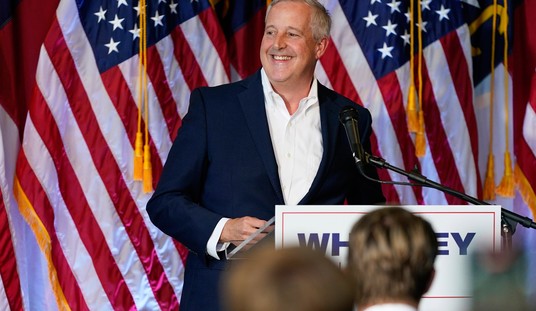I know, the phrase “New Voting Method” sets off alarm bells. This will be the first wide-scale use of Ranked Choice Vote where, as the name implies, primary voters will arrange all candidates by preference. As the Bangor Daily News summarizes:
On June 12, Maine will become the first state to use a voter-approved ranked-choice voting system in state and congressional primaries with at least three candidates. At the same time, the state will vote on a people’s veto effort to repeal a law passed by the Legislature that could delay use of the system.
In ranked-choice races, a winner is declared if more than 50 percent of first-choice votes go to one candidate. If not, the candidate with the lowest share of first-place votes is eliminated and their second-place votes are reallocated, a process repeated until a majority is won.
The process and the reasons behind it are as crazy as you’d expect: Maine has only elected a Governor with an outright majority once in the last 32 years, (currently Senator) Angus King. Outraged by GOP Gov. LePage’s election by 37% and re-election by 48%, the progressives pushed the new method in the state’s easily gamed referendum system in 2016, denying the governor had any legitimacy. Awkwardly, it only applies to primaries and legislative offices in the general election, because the Maine State Constitution(Art. V Sec.3) specifically calls for allowing plurality election of governors:
“…they shall determine the number of votes duly cast for the office of Governor, and in case of a choice by plurality of all of the votes returned they shall declare and publish the same.”
So the entire motivation for the system is moot, but the rest of the ballot is affected anyhow. This brings us to the current races where, according to SurveyUSA simulation, the new method doesn’t change much, even for governor:
On the Republican side, Moody used a first-round lead to beat former Maine Health and Human Services Commissioner Mary Mayhew in the final round after also getting a larger share than Mayhew of later-round votes from people who supported Senate Majority Leader Garrett Mason and House Minority Leader Ken Fredette.
Of interest to RS Readers, Garret Mason has been endorsed by Sen. Ted Cruz and is an original Tea Party guy in the state legislature.
Thank you @tedcruz for your endorsement! pic.twitter.com/STU7iUKhd4
— Garrett Mason (@garrettmason) March 7, 2018
This is significant, in that Cruz won the 2016 GOP caucus, and SurveyUSA had Trump at 50%-disapproval in the same poll as above. Garret comes from a minor local “dynasty” where his mother Gina and cousin Dale Crafts joined him with their own seats the state house. After Gina’s untimely death last year, her husband Rick won the special election for her seat.
It is with good reason that most of Mason’s supporters swing over to Sean Moody. He founded and runs a chain of auto-body shops and has a similar, though thankfully less vulgar, salt-of-the-earth approach to life as Gov. LePage and Pres. Trump. He ran as an Independent in 2010 earning a fourth place, 5% vote.
Mayhew is a somewhat typical establishment candidate in this race, and has the support of most of the state GOP officials who have bothered to endorse.
The top two Dems, AG Janet Mills and former House Speaker Mark Eves, were leaders of what passed for the Maine version of #theResistance when LePage and then Trump were elected. They frequently threw up every road-block their offices would allow to thwart LePage’s agenda. Oddly enough, Mills’ husband Peter was also a candidate in the 2008 GOP primary running a predictably unsuccessful centrist campaign. The Dem primary simulation is not much different:
It worked similarly in the Democratic simulation, in which Mills’ first-round lead was too big for other candidates to overcome. She won a majority in the fifth round of voting over former House Speaker Mark Eves, the runner-up in both the first round of the poll and the [final round] simulation. State Sen. Mark Dion and Sanford attorney Adam Cote are eliminated before Eves.
The only other race where it matters is for the Democrats in ME-2 trying to unseat Rep. Bruce Poliquin, though the simulation is already obsolete here.
“Conservationist[and son of Burt’s Bees founder Roxane Quimby] Lucas St. Clair edged Assistant House Majority Leader Jared Golden in the final round, but only by a margin of 52 percent to 48 percent. Polling began before candidate Jonathan Fulford dropped out of the race and he was included.”
So far, the new system currently lends token legitimacy to candidates that probably would win by plurality anyway.













Join the conversation as a VIP Member